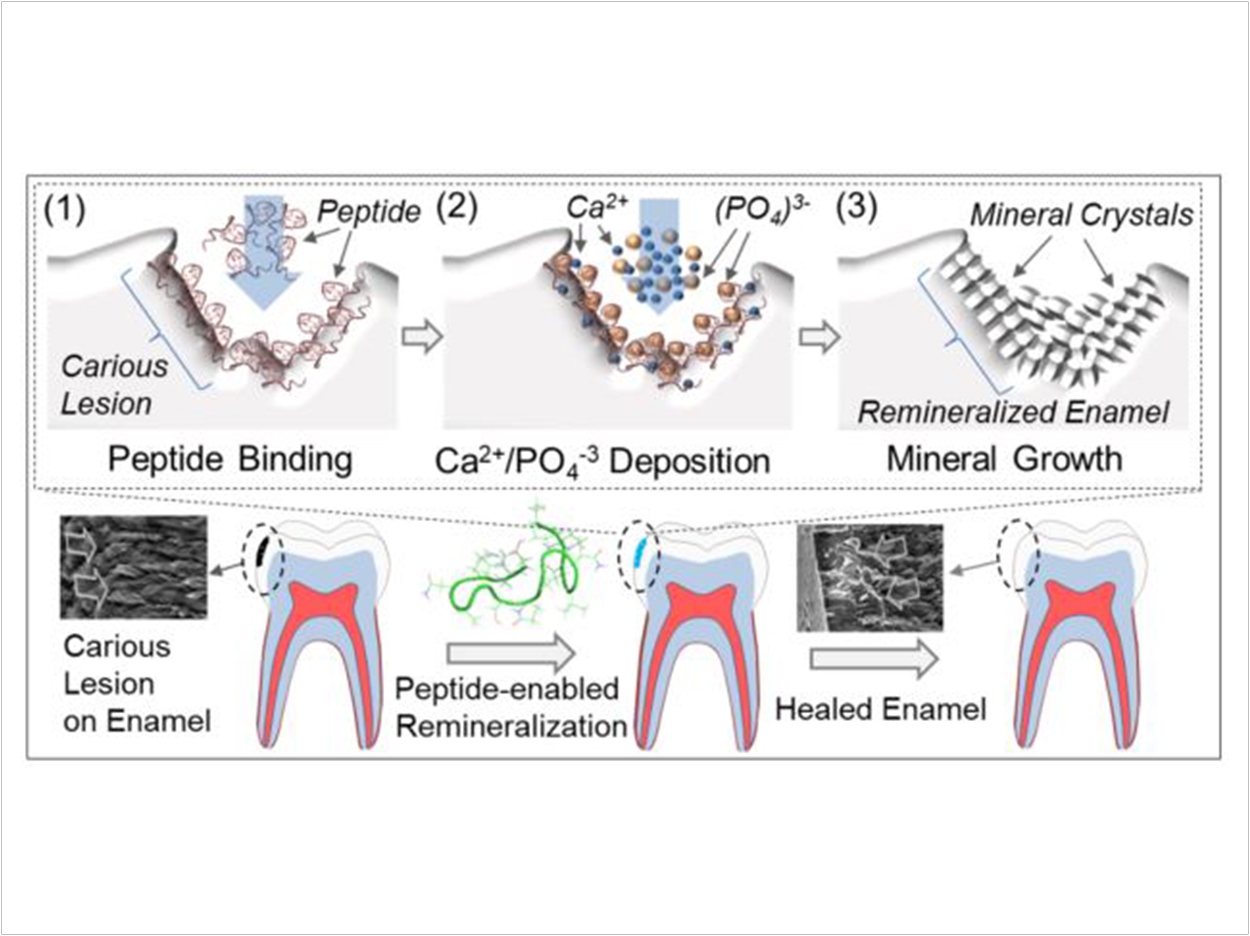
Researchers at the University of Washington (UW) say they have designed a convenient and natural product that uses proteins to rebuild tooth enamel and treat dental cavities. The new biogenic dental products can, in theory, rebuild teeth and cure cavities without costly and uncomfortable treatment.
“Remineralization guided by peptides is a healthy alternative to current dental healthcare,” said lead author Mehmet Sarikaya, PhD, professor of materials science and engineering and adjunct professor in the Department of Chemical Engineering and Department of Oral Health Sciences. “Peptide-enabled formulations will be simple and would be implemented in over-the-counter clinical products.”
According to the World Health Organization, cavities affect nearly every age group and are accompanied by serious health concerns. Also, the direct and indirect costs of treating cavities and related diseases have been a huge economic burden for individuals and healthcare systems, the researchers report.
“Bacteria metabolize sugar and other fermentable carbohydrates in oral environments and acid, as a byproduct, will demineralize the dental enamel,” said coauthor Sami Dogan, DMD, DrMedDent, associate professor in the Department of Restorative Dentistry at the UW School of Dentistry.
Although decay is relatively harmless in its earliest stages, once the cavity progresses through the enamel, serious health concerns arise. If left untreated, tooth decay can lead to tooth loss, which in turn can have adverse consequences on the remaining teeth and supporting tissues as well as on the patient’s general health, including life-threatening conditions.
Good oral hygiene is the best prevention, the researchers say, and brushing and flossing have significantly reduced the impact of cavities for many Americans over the past half-century. Yet some socioeconomic groups suffer disproportionally from decay, the researchers add. And, the Centers for Disease Control and Prevention report that the prevalence of cavities among Americans is rising, suggesting a regression in the progress in combatting decay.
Inspired by the body’s own natural tooth-forming proteins, the researchers came up with a way to repair enamel by capturing the essence of amelogenin—a protein crucial to forming the hard crown enamel—to design amelogenin-derived peptides that biomineralize and are the key active ingredient in the new technology. The bioinspired repair process restores the mineral structure found in native tooth enamel.
“These peptides are proven to bind onto tooth surfaces and recruit calcium and phosphate ions,” said coauthor and UW doctoral student Deniz Yucesoy.
The peptide-enabled technology allows the deposition of 10 to 50 µm of new enamel on the teeth after each use. Once fully developed, it can be used in private and public health settings, in biomimetic toothpaste, gels, solutions, and composites as a safe alternative to existing dental procedures and treatments. It enables people to rebuild and strengthen tooth enamel daily as part of a preventive routine. Also, it is expected to be safe for use by adults and children.
The study, “Biomimetic Tooth Repair: Amelogenin-Derived Peptide Enables in Vitro Remineralization of Human Enamel,” was published by ACS Biomaterials Science and Engineering.
Related Articles
Biofilm Research Garners AADR Awards
Salivary Peptide Promotes Wound Healing
Low-Cost Peptide Kills Bacteria and Breaks Up Plaque












